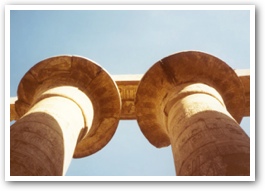Beyond cheerleading
- MARVIN OLASKY
Many liberals and conservatives are pushing for elections in Egypt and elsewhere, but democracy without religious liberty will merely lead to a different tyranny.
 |
X-Jump, Pencil, Tuck, Pike, Double Hook, Herkie: Those are the names of some of the traditional jumps that cheerleaders perform. Television commentators, with rare exceptions like Charles Krauthammer, have been performing those stunts and more as they've used their media megaphones to become cheerleaders for Middle East revolution in recent weeks.
Talking heads have been stumbling over Egyptian names but confidently projecting American history into a Muslim theater: Dictatorship will end if Egyptians can freely vote, and they'll live happily ever after. Few seem aware of last June's Pew opinion survey of Egyptians that showed 59 percent backing Islamists. (And 84 percent support executing Muslims who change their religion.)
Besides, in situations of confusion and governmental breakdown, polls matter less than organization. Vladimir Lenin's small group of Bolsheviks seized control of Russia in 1917, and the Ayatollah Khomeini's disciplined forces did the same in Iran in 1979. Some Egyptian moderates may be tanned, rested, and ready, but how will they fare against ruthless Muslim Brotherhood plotters?
The Obama administration's reaction to Egyptian events has changed from day to day. That's no knock on it at a time when events move fast, but it has elevated the Bush administration's tendency to favor democracy rather than liberty into a general principle: Our goal seems to be elections, period. And yet, elections without a free press usually produce new dictators, and democracy without religious liberty produces the tyranny of the mob.
The Obama administration has shown its blindness throughout the crisis; for example, President Obama's speech on Feb. 1 listed various freedoms Egyptians needed but conspicuously left out "religion." Islamists have killed and persecuted Coptic Christians in Egypt, and quick-to-speak Obama has not spoken. Congress has appropriated funds for busting the firewalls that regimes in China, Iran, Egypt and elsewhere use to restrict internet access in their countries, and quick-to-spend Obama bureaucrats have not spent those dollars.
Some neoconservative analysis of the Egyptian crisis hasn't been any better than that of liberals. Weekly Standard editor William Kristol is proposing that the United States "take an active role . . . to bring about a South Korea/Philippines/Chile-like transition in Egypt." That would be nice, but those three countries had substantial Christian influence and experience with the results. Religious liberty leads to other liberties, not vice versa.
Even the American Revolution ended well only because it was the work of a century, with colonies becoming largely self-governing early in the 1700s, press and religious liberty gaining solid backing in the 1730s, and local leaders – "lesser magistrates" – asserting themselves in the 1760s. Countries that tried to rush the process – France in the 1790s, for instance – typically ended up wading in blood.
Religious liberty leads to other liberties, not vice versa. |
Recognizing that, U.S. foreign policy for decades had national security as its primary goal, of course, but the promotion of liberty as its secondary mission. For example, the decision of British officials in India to forbid American missionaries from doing or saying anything that might offend Hindu hierarchs became a secondary cause of the War of 1812.
When we make an idol of elections without liberty, we're placing liberal and neoconservative theories over biblical discernment and conservative experience. The Bush administration was sometimes muddled on the relation of liberty and democracy, but President Bush in 2003 noted the importance of "independent newspapers and broadcast media" and stated, "Successful societies guarantee religious liberty – the right to serve and honor God without fear of persecution."
Joe Biden was wrong about the past when he said last month that Egyptian strongman Hosni Mubarak should not be called a dictator, but he may have been relatively right about the future. If the Muslim Brotherhood takes power, millions of Egyptians will see him as non-dictatorial in comparison with their new masters.
 This is Meaghen Gonzalez, Editor of CERC. I hope you appreciated this piece. We curate these articles especially for believers like you.
This is Meaghen Gonzalez, Editor of CERC. I hope you appreciated this piece. We curate these articles especially for believers like you.
Please show your appreciation by making a $3 donation. CERC is entirely reader supported.

Acknowledgement
Marvin Olasky. "Beyond cheerleading." WORLD Magazine (February 11, 2011).
Reprinted with permission of WORLD Magazine.
The Author
Marvin Olasky is editor-in-chief of WORLD Magazine and the author of more than 20 books, including The Tragedy of American Compassion, The Politics of Disaster: Katrina, Big Government, and A New Strategy for Future Crises, and The Religions Next Door: What We Need To Know About Judaism, Hinduism, Buddhism, And Islam and What Reporters Are Missing.
Copyright © 2011 WORLD Magazine

